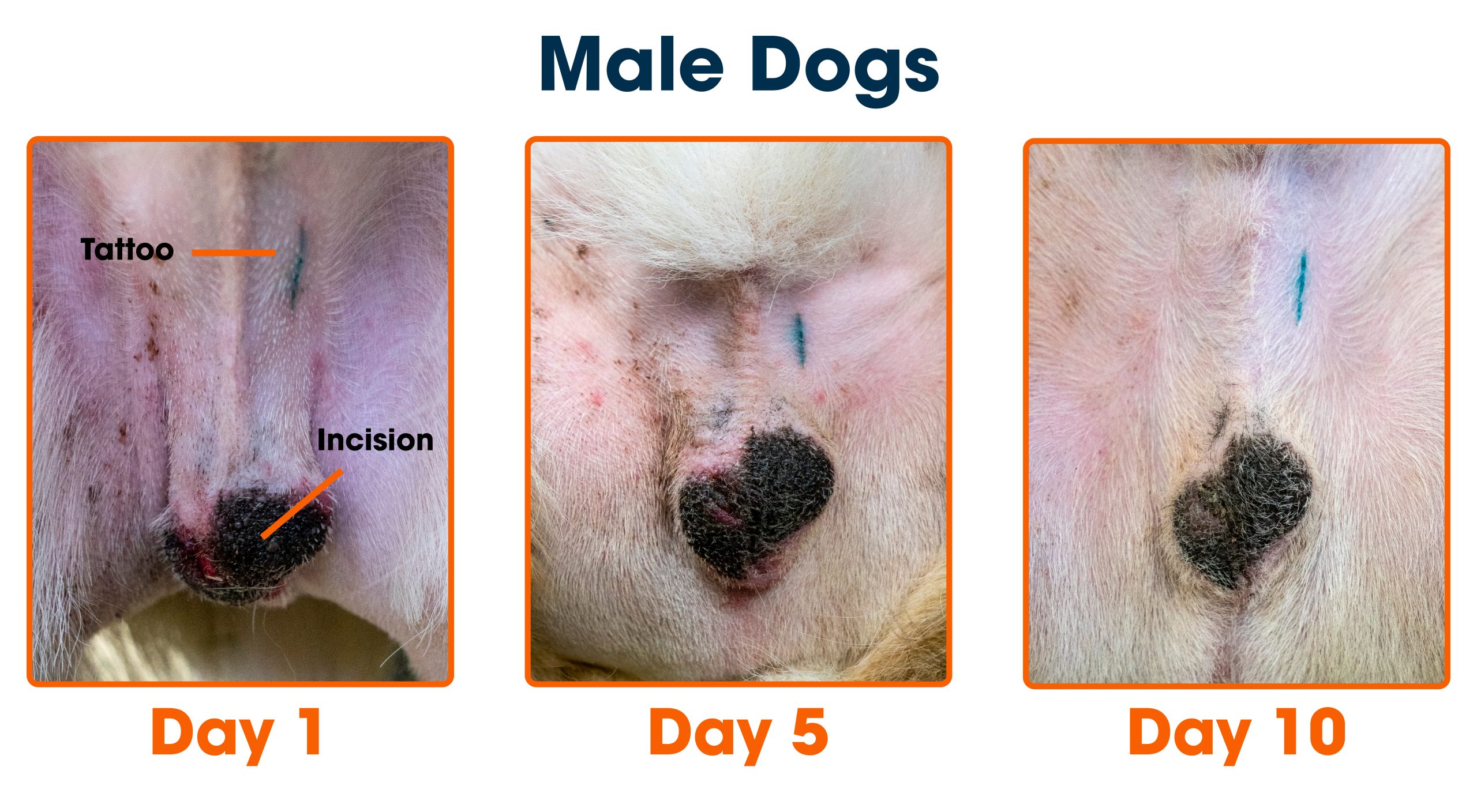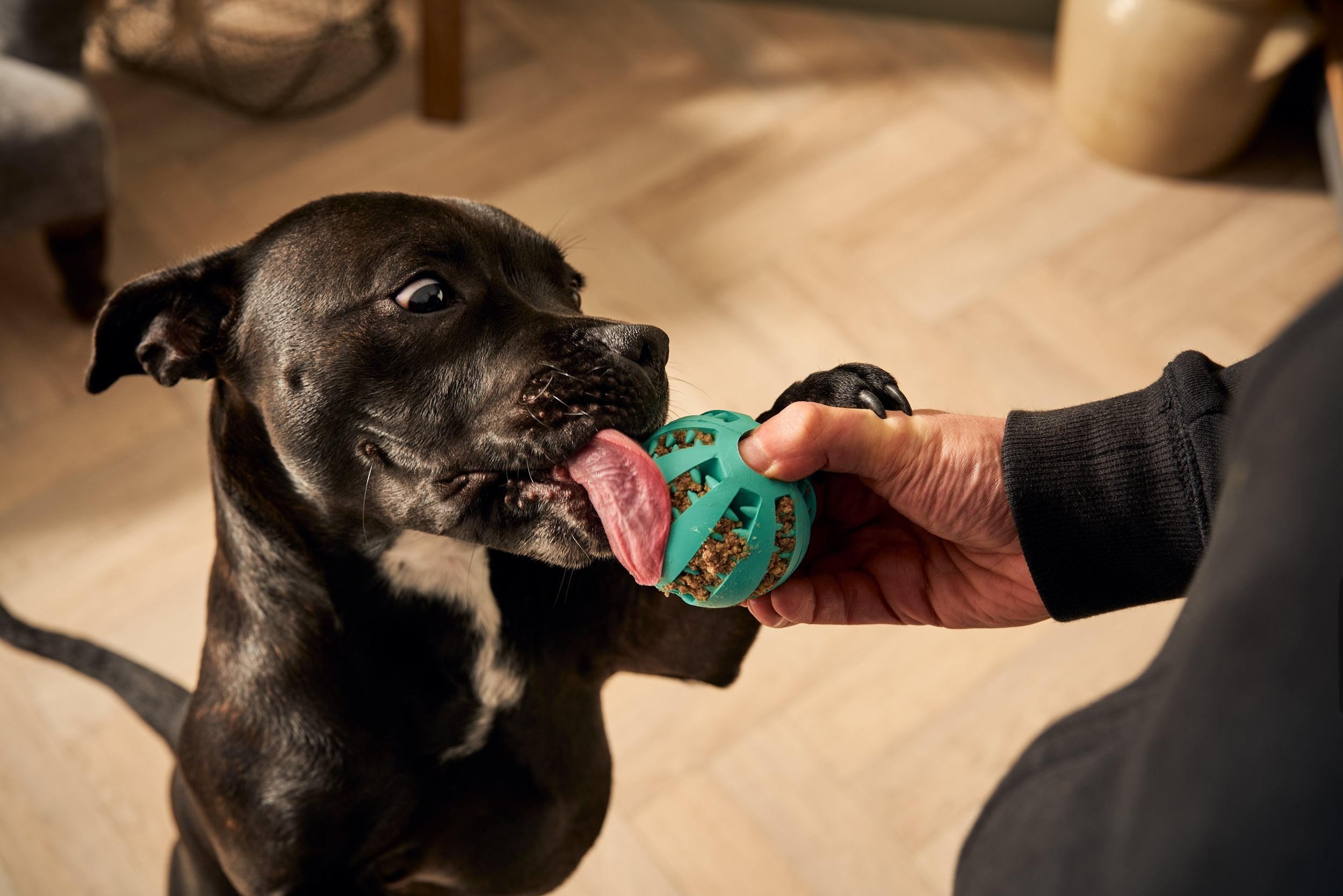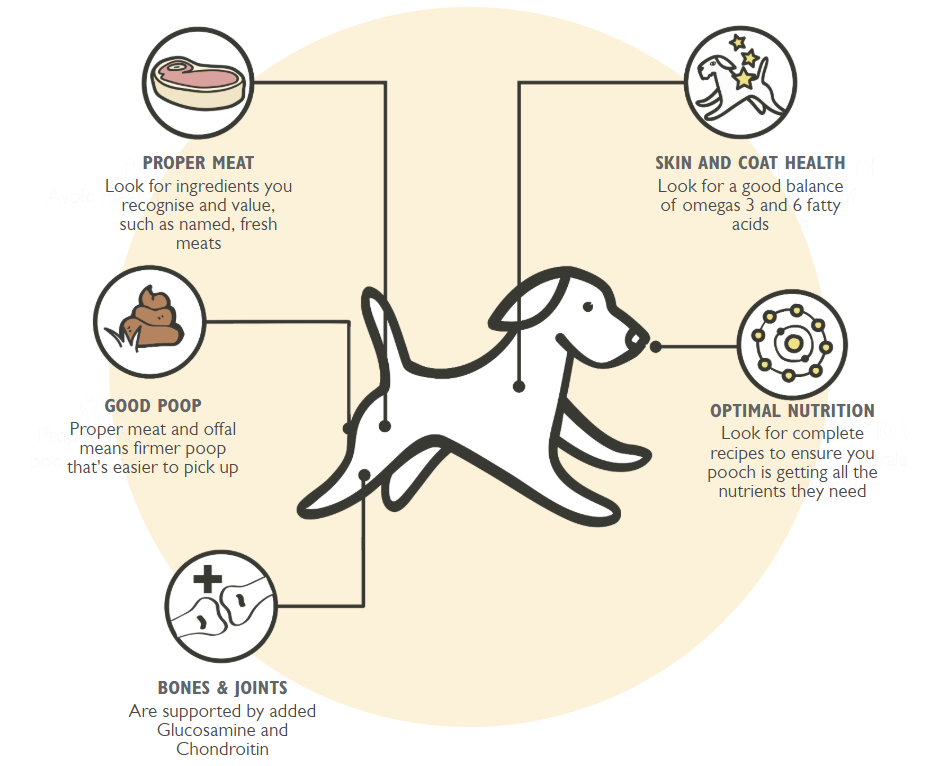You want your dog to be happy and healthy, right? But do you really know what nutrition your dog needs every day?
Feeding your furry friend the right food is more than just filling their bowl. It’s about giving them the energy, strength, and vitality to live their best life by your side. You’ll discover the key nutrients your dog needs and how they impact your pet’s health.
Keep reading to learn how to make the best choices for your dog’s diet and watch them thrive like never before.
Credit: blog.unleavables.com
Balanced Diet Components
A balanced diet is essential for your dog’s overall health and happiness. It provides the right mix of nutrients that support growth, energy, and immune function. Understanding each component helps you make smarter choices about your dog’s meals.
Proteins And Their Sources
Proteins build and repair your dog’s muscles, skin, and organs. High-quality sources include chicken, beef, fish, and eggs. If your dog has allergies, novel proteins like duck or venison can be good alternatives.
Have you noticed how your dog’s energy levels change after meals? That’s often linked to the protein quality in their diet. Proteins are more than just fuel—they’re the building blocks of life.
Fats For Energy
Fats provide a concentrated source of energy and help keep your dog’s coat shiny and skin healthy. Look for sources like fish oil, flaxseed oil, and chicken fat. These fats also support brain function and reduce inflammation.
Balancing fats is crucial; too much can cause weight gain, but too little can lead to dull fur. Do you pay attention to the fat content on your dog food label? It’s a simple step that can improve your dog’s vitality.
Carbohydrates Role
Carbohydrates supply your dog with energy and fiber to aid digestion. Good options include brown rice, sweet potatoes, and oats. Avoid fillers like corn and wheat, which can upset some dogs’ stomachs.
Many dog owners overlook carbs, but they play a key role in maintaining steady energy. What’s your dog’s favorite carb source? Switching to healthier carbs might boost their stamina during playtime.
Vitamins And Minerals
Vitamins and minerals support your dog’s immune system, bone health, and overall function. Essential vitamins include A, D, E, and B-complex, while minerals like calcium and phosphorus keep bones strong. These nutrients often come from vegetables and supplements.
Did you know a lack of certain vitamins can cause serious health issues in dogs? Regularly checking your dog’s diet for these nutrients can prevent deficiencies and keep your pet thriving.
Age-specific Nutritional Needs
Dogs need different nutrition at each stage of life. Age affects their energy levels, metabolism, and health needs. Feeding the right nutrients supports growth, maintains health, and helps aging dogs stay comfortable. Understanding these needs helps provide the best care.
Puppies Growth Requirements
Puppies need more calories than adult dogs. Their food must be rich in protein for muscle and tissue development. Calcium and phosphorus support strong bones and teeth. Healthy fats are vital for brain and eye growth. Frequent, small meals help maintain energy throughout the day.
Adult Dogs Maintenance
Adult dogs require balanced nutrition to maintain weight and health. Protein supports muscle mass without excess calories. Carbohydrates and fats provide steady energy. Vitamins and minerals keep the immune system strong. Portion control prevents obesity and related health issues.
Senior Dogs Adjustments
Senior dogs need fewer calories due to lower activity levels. Protein remains important to preserve muscle mass. Fiber helps digestion and prevents constipation. Joint-supporting nutrients like glucosamine ease stiffness. Antioxidants promote brain and immune health.
Breed-specific Considerations
Different dog breeds have unique nutritional needs. Their size, activity level, and health risks shape these needs. Feeding the right diet supports their growth and keeps them healthy. Understanding breed-specific nutrition helps provide the best care for your dog.
Small Breeds
Small breeds have fast metabolisms and burn energy quickly. They need food rich in calories and nutrients. Small kibbles fit better in their mouths and help digestion. Protein supports their muscles, while fats give energy. These dogs also benefit from nutrients that support dental health.
Large Breeds
Large breeds grow fast and need balanced nutrition for bones and joints. Too many calories can cause rapid weight gain, stressing their skeleton. Controlled protein and fat levels promote steady growth. Glucosamine and chondroitin help protect joints. A diet with proper calcium and phosphorus ratios is essential.
Working Dogs
Working dogs burn a lot of energy daily. They require high-protein diets to maintain muscle strength. Healthy fats provide long-lasting energy. Vitamins and minerals support stamina and recovery. Hydration is crucial to replace lost fluids. Feeding multiple small meals helps sustain their energy levels.
Common Dietary Supplements
Common dietary supplements help fill gaps in a dog’s nutrition. They support health beyond basic food. Supplements often boost skin, digestion, and joints. Pet owners use them to maintain vitality and comfort. Choosing the right supplement depends on the dog’s needs and health status.
Omega Fatty Acids
Omega fatty acids are essential for healthy skin and coat. They reduce itching and dryness. These fats also support brain and heart health. Many dog foods contain omega-3 and omega-6 oils. Supplements like fish oil or flaxseed oil increase intake. Regular use helps keep dogs shiny and comfortable.
Probiotics Benefits
Probiotics improve digestion and gut health. They balance good bacteria in the intestines. This aids nutrient absorption and reduces diarrhea. Probiotic supplements come as powders, capsules, or treats. They support immune function and reduce stomach issues. Healthy digestion means better energy and well-being.
Joint Support Supplements
Joint supplements protect cartilage and ease movement. Ingredients like glucosamine and chondroitin reduce inflammation. They help dogs with arthritis or aging joints. These supplements improve flexibility and reduce pain. Regular use can maintain activity levels in older dogs. Joint health is key to a happy, active pet.
Recognizing Nutritional Deficiencies
Recognizing nutritional deficiencies in dogs is essential for their health. Dogs need balanced nutrients to stay active and strong. Missing key nutrients can cause serious health problems. Early detection helps prevent long-term damage.
Watch your dog closely for signs of poor nutrition. Changes in behavior and physical appearance often indicate deficiencies. Understanding these signs allows timely intervention and care.
Signs Of Malnutrition
- Weight loss despite normal eating habits
- Poor coat quality, dull or brittle fur
- Frequent infections or slow wound healing
- Loss of muscle mass and weakness
- Digestive issues like diarrhea or constipation
Behavioral Changes
- Lethargy or less interest in play
- Increased irritability or restlessness
- Difficulty concentrating or confusion
- Reduced appetite or picky eating
- Excessive sleeping or withdrawal
Physical Symptoms
- Dry, flaky skin or hair loss
- Swollen or painful joints
- Thin, fragile bones or limping
- Bad breath or dental problems
- Visible ribs or spine due to fat loss
Creating A Feeding Schedule
Creating a feeding schedule for your dog is more than just picking meal times. It sets a routine that helps your pet feel secure and supports their overall health. A well-planned schedule also makes it easier to manage their nutrition and monitor changes in their eating habits.
Frequency Of Meals
The number of meals your dog needs depends on their age, size, and activity level. Puppies usually eat three to four times a day because they burn energy quickly and need consistent nutrition. Adult dogs typically do well with two meals daily, morning and evening, which helps maintain steady energy levels.
Smaller breeds may benefit from more frequent, smaller meals to avoid blood sugar dips. Have you noticed how your dog reacts when meals are delayed or skipped? Regular meal times can prevent hunger-driven behaviors and digestive upset.
Portion Control
Feeding the right amount is as important as how often you feed. Use the feeding guidelines on your dog food package as a starting point, but adjust based on your dog’s body condition and activity. Overfeeding can lead to weight gain, while underfeeding may cause nutrient deficiencies.
Measuring portions with a cup or scale keeps you consistent. I once switched from free feeding to portion control and saw my dog’s weight normalize within weeks. What tools do you use to measure your dog’s food?
Monitoring Weight And Health
Tracking your dog’s weight regularly helps you spot potential health issues early. A sudden gain might indicate overfeeding or a health problem, while weight loss can signal illness or poor absorption of nutrients. Keep an eye on their coat, energy, and bathroom habits too—they’re clues to their overall well-being.
Scheduling vet visits alongside your feeding routine ensures professional guidance. If you notice changes in appetite or behavior, adjusting the feeding schedule might be necessary. How often do you check your dog’s weight and health status?
Homemade Vs. Commercial Food
Choosing what to feed your dog often means deciding between homemade meals and commercial food. Both options offer unique benefits and challenges. Understanding these can help you make the best choice for your pet’s health and happiness.
Advantages Of Homemade Meals
Homemade meals give you full control over ingredients. You can use fresh, natural foods without preservatives. This helps avoid allergens or fillers found in some commercial products. Cooking at home allows tailoring meals to your dog’s specific needs. You can adjust portions, add supplements, and ensure a balanced diet. It also creates a closer bond through the care you show in meal preparation.
Benefits Of Commercial Options
Commercial dog food is convenient and time-saving. It comes in many types, such as dry kibble, canned, or freeze-dried. These foods are designed to meet nutritional standards set by experts. They contain balanced vitamins, minerals, and proteins your dog needs. Commercial food usually has a long shelf life and easy storage. It suits busy pet owners or those who travel often.
Balancing Both Approaches
Combining homemade and commercial food can offer the best of both worlds. Use commercial food for daily meals and add homemade treats or supplements. This approach provides nutritional balance and variety. Always consult a vet before changing your dog’s diet. They can guide portion sizes and nutrient needs. Mix foods gradually to avoid digestive upset and keep your dog healthy.

Credit: www.facebook.com

Credit: pupford.com
Frequently Asked Questions
What Are Essential Nutrients For A Dog’s Diet?
Dogs need proteins, fats, carbohydrates, vitamins, and minerals. Protein supports muscle growth, fats provide energy, and vitamins and minerals ensure overall health and immune function.
How Much Protein Does A Dog Require Daily?
Adult dogs typically need 18-25% protein in their diet. Puppies and active dogs may require more for growth and energy needs.
Can Dogs Eat Fruits And Vegetables Safely?
Yes, many fruits and vegetables are safe and healthy for dogs. They provide fiber, vitamins, and antioxidants but avoid toxic options like grapes and onions.
Why Are Fats Important In A Dog’s Nutrition?
Fats supply energy, support skin and coat health, and help absorb fat-soluble vitamins. Omega-3 and Omega-6 fatty acids are particularly beneficial.
Conclusion
Dogs need balanced nutrition to stay healthy and happy. Protein helps build strong muscles and keeps energy high. Fats provide essential energy and support skin and coat health. Carbohydrates give fuel for daily activities. Vitamins and minerals help with growth and immune support.
Fresh water is vital every day. Feeding your dog the right nutrients supports a long, active life. Understanding these basics makes feeding easier. Care for your dog with good nutrition and love. Simple steps lead to a healthier pet.







